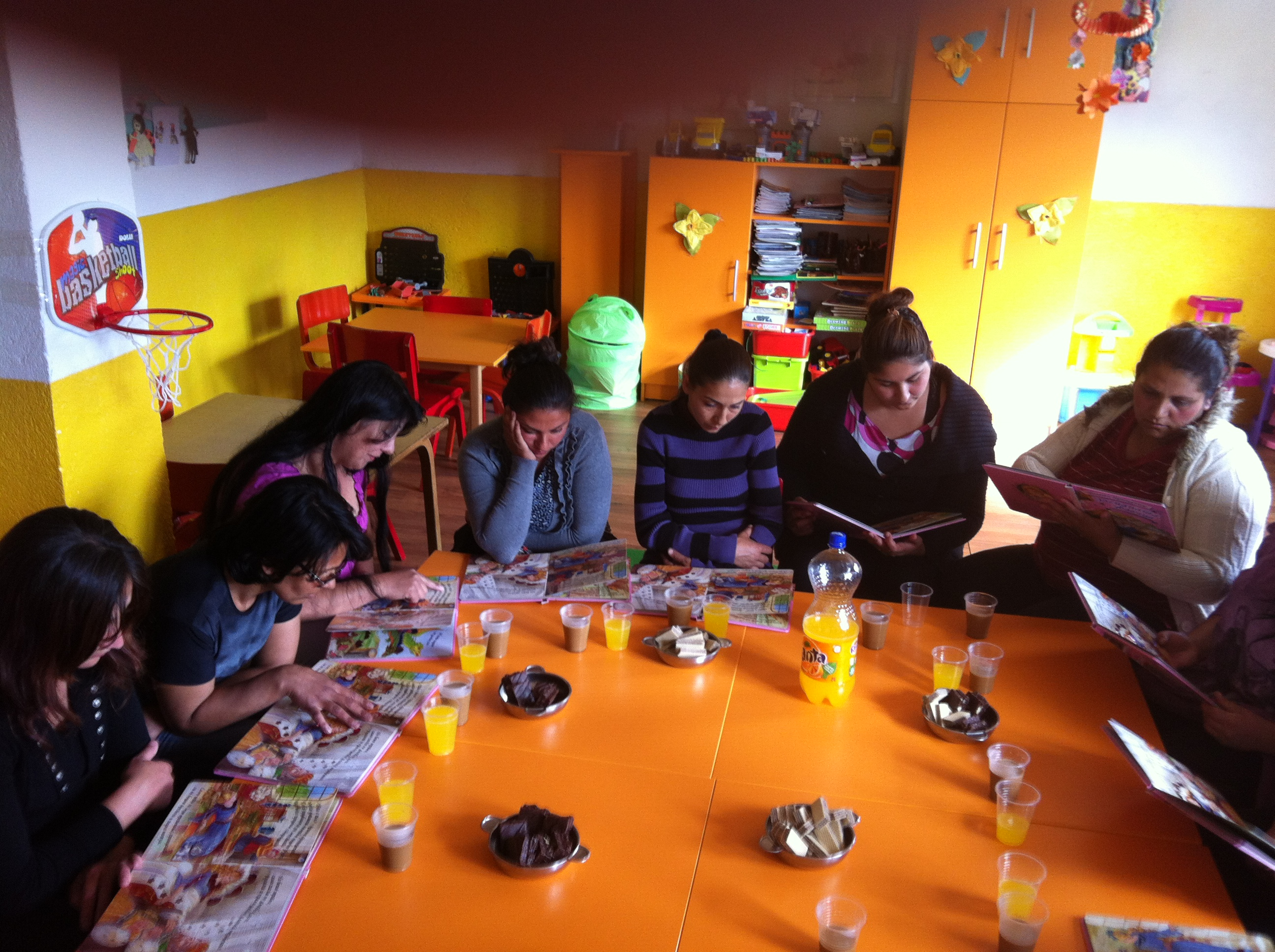
By adopting a family-centered approach, the program has not only benefitted the children but has greatly improved the families’ approach to education.
The question of how to promote equal access to education for Romani children in Slovakia is a difficult one. One solution that has seen some success is the Roma Education Fund’s ongoing program on early childhood education and care, A Good Start (AGS).Now in its second phase, AGS is an innovative project that promotes learning and the inclusion of Romani children in their respective national education systems. In the municipality of Zborov in northeastern Slovakia, nearly 200 Romani children aged seven and under are participating in this groundbreaking early childhood education and care (ECEC) project with the support of the Equal Chances Association and the Roma Education Fund. The project combines a number of interconnected programs designed to increase access to early childhood education for young Romani children, ensure the quality of services, and strengthen parental skills and involvement in education.
The participating Romani children and parents have seen a number of positive results from the project’s programs including the empowerment of mothers and an improvement in their children’s learning and educational outcomes. Mothers participating in the “Your Story” program read aloud in groups and work with picture books to improve literacy and facilitate their children’s learning while the Home School Community Liaison module brings 20 mothers into the classroom to teach. The program places an additional emphasis on family involvement in the learning process as 21 families participate in Family Education while 55 families take advantage of the Zborov Toy Library. By adopting a family-centered approach, the program has not only benefitted the children but has greatly improved the families’ approach to education. The “Your Story” program has improved mothers’ attitudes towards the use of books and as a result, they feel more confident in their reading abilities.
Your Story facilitators, Mrs. Kovacova and Mrs. Cinova, are experienced education activists and pedagogues who are well respected in the community due to their long-term cooperation with the Equal Chances Association. Both women have expressed their surprise at the quick success of the Your Story program within the community and have even noted how children are demanding bedtime stories before they go to sleep. Within the community, the positive effects of the program on the mothers have not gone unnoticed. One mother noticed an increased self-esteem when reading, as she feels like a good example for her children. “It just feels good” she told us. Another woman, Mrs. Sivakova, noted her appreciation at the chance to read to her grandchildren since missing the opportunity to read to her own children when they were little.
The Home School Community Liaison sessions were organized on six occasions during the 2012-2013 academic year. The topics covered a variety of themes to address the mothers’ interests and stimulate their creativity. Activities included: “Music as a Part of Life”, “Magic Toys,” games about the Zborov Castle, soft skills development, the “Big Trip”, and games meant to improve sensory skills. Upon the completion of the sessions, an end of the school year celebration was held where mothers and children worked together to make a cold fruit cake. The participants reflected that the sessions were an empowering experience that was enjoyed by mothers and children alike.
The Zborov Toy Library provided the perfect complement to the early childhood project, allowing children to borrow toys while educating their parents on how to play with children to support their development. The library is a community initiative where families can go to borrow toys, puzzles, games and books. The toys are carefully selected to fulfill the needs of the parents and their children, and provide an opportunity for the entire family to play together. It provides an opportunity for parents to develop their parenting skills and understand the role of play in the stages of a child’s development. The toys can be played with on-site or borrowed to be enjoyed at home. In addition to these services, the toy library offers a portable service that helps to build links within the community.
The aim of the Family Education component is to continue the educational process for children not attending kindergarten and address their emotional, cognitive and motoric development. The children are taught in a home environment with regular meetings. The goal of the program is to engage the children in a manner that will help address their developmental needs and encourage their enrollment into kindergarten the following year. The Family Education component has been widely successful with nearly 100 percent attendance. The children have shown that not only are they learning and developing, but they have begun to enjoy learning and look forward to their meetings.
Improving the educational outcomes for vulnerable Roma students in Slovakia takes a comprehensive effort by civil society and community members alike. Through a comprehensive, family-centered approach to education, “A Good Start” has made great strides in addressing the difficulties in accessing early childhood education and care for Romani children in Slovakia.
To watch some of A Good Start’s earlier programming in Zborov click here.
Szilvia Pallaghy is the REF Country Officer for Albania, Kosovo and Moldova.Tags: Adult education, Roma
